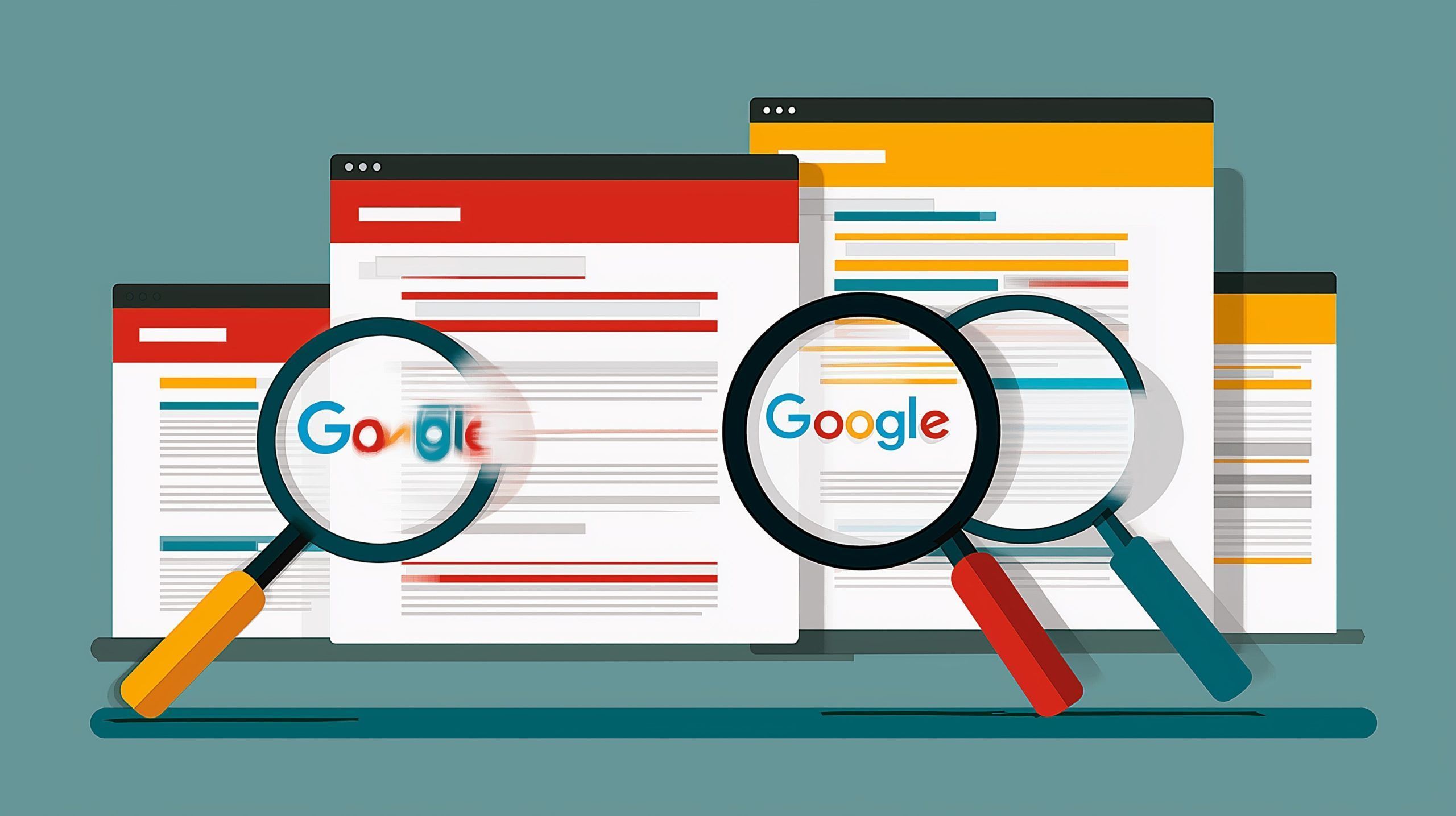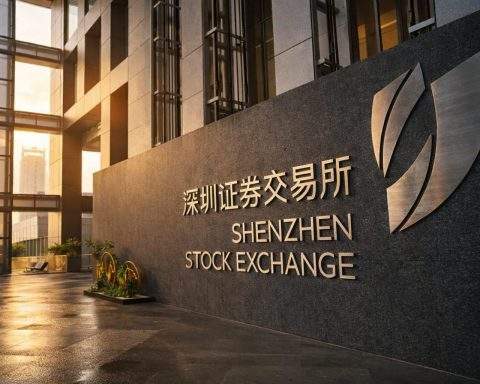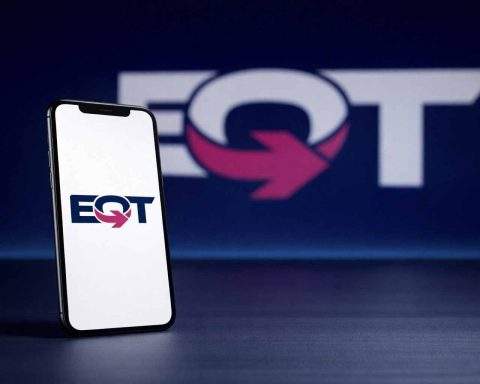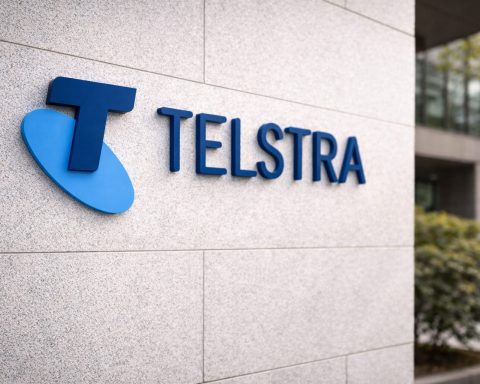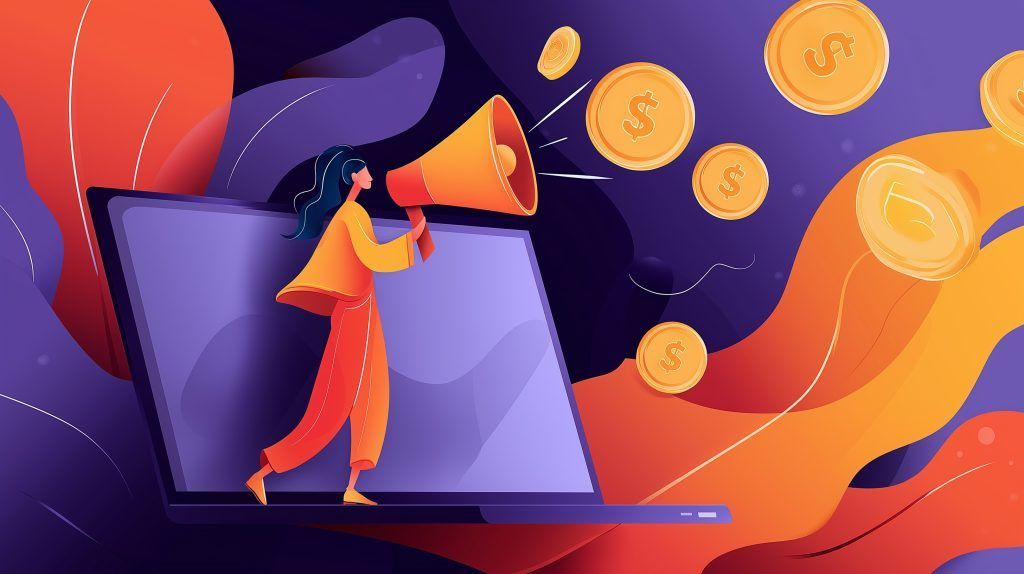- Google’s Search Generative Experience (SGE) uses AI Overviews to present synthesized facts with source links at the top, and in 2025 Google launched AI Mode for follow-up questions powered by Gemini that runs hundreds of sub-queries per query.
- Microsoft Bing integrated GPT-4 into search to create Bing Chat, with Nadella declaring that AI will fundamentally change search and adding image inputs and Windows/Edge “Copilot” integration across products.
- Google Lens and the new Search Live feature enable multimodal search with real-time visual Q&A, video analysis, and the ability to upload images or PDFs for AI-assisted answers.
- Google’s AI Mode will offer personalized results based on user context, optionally using Gmail and past searches to, for example, suggest restaurants in a city you’re visiting.
- AI-powered search tools are changing user behavior, with 77% of U.S. ChatGPT users treating it as a search engine, about 1 in 4 using it first, 28% of Gen Z starting there, 30% trusting it more than traditional search, and 81% favoring ChatGPT for open-ended, creative queries.
- Perplexity AI grew to 780 million queries in May 2025 (roughly 30 million per day) and plans a forthcoming Comet AI browser, with a goal of 1 billion queries per week within a year and valuations reported around $1.5–2 billion.
- On July 1, 2025, “Content Independence Day,” Cloudflare and major publishers started blocking AI crawlers by default unless they are paid, with over a million sites already disallowing OpenAI’s GPTBot.
- Regulators are scrutinizing AI search, including Google’s August 2024 antitrust ruling labeling Google a monopolist in search and ads, the EU DMA, GDPR, the AI Act, and debates over copyright, data training, and transparency of AI-generated results.
- Strategically, Google pursues cautious, end-to-end AI integration (Gemini) and a careful rollout to protect the web, while Microsoft turns Bing into a platform across Windows and Office, and OpenAI leans on partnerships and subscriptions for AI-powered search.
- Looking ahead to 2025–2026, search is expected to become a real-time, multimodal assistant that can perform actions like booking tickets, shopping, or solving tasks directly inside the results, with ongoing questions about accuracy, privacy, and content licensing.
AI Revolution in Search Engines: Smarter, More Personal Results
Search engines are undergoing their biggest evolution in decades. Advances in AI and natural language processing now allow Google, Bing, and new challengers to answer complex questions in plain English, synthesize information, and even carry on conversations. Google reports users are asking “more complex, longer and multimodal questions” than before blog.google – queries that traditional keyword search struggled with. In response, Google’s Search Generative Experience (SGE) uses AI Overviews to answer broad questions with synthesized facts (and links to sources) at the top of results blog.google. Google calls this one of its most successful launches ever, driving users to “ask more” and search more often blog.google.
Both Google and Microsoft have introduced chatbot-like search modes powered by large language models. Google’s new “AI Mode” (launched in 2025) allows follow-up questions and advanced reasoning, essentially letting you have a conversation with Google Search blog.google blog.google. Under the hood it breaks your query into sub-queries and runs “hundreds of searches” to compile an answer blog.google. Microsoft’s Bing similarly integrated OpenAI’s GPT-4 model into search, creating a conversational Bing Chat. Microsoft’s CEO Satya Nadella declared “AI will fundamentally change… search”, as Bing now can chat, create content, and understand images blogs.microsoft.com upgrad.com. Both companies are adding multimodal abilities – Bing’s AI can accept image inputs, and Google’s AI Mode ties in with Google Lens for visual search using your camera blog.google.
Personalization is another leap. Google’s AI Mode will soon offer tailored results based on your context, if you opt in. It can, for example, suggest restaurants in a city you’re visiting by using your past searches and even data from Gmail (like your flight and hotel info), all under user control blog.google. These AI-driven personalized answers blur the line between search engine and digital assistant. The goal: to make searching feel more like asking a knowledgeable human and less like typing keywords. As Google puts it, they’re moving “beyond information to intelligence” in search blog.google.
Rise of AI-Powered Search Tools vs. Traditional Engines
A new crop of AI-native search tools has exploded in popularity, challenging Google’s longtime dominance. ChatGPT – originally a general AI chatbot – has become an information destination for millions. In fact, 77% of U.S. ChatGPT users say they use it like a search engine, and nearly 1 in 4 now go to ChatGPT first when looking up information adobe.com. Young users lead this trend: 28% of Gen Z prefer starting searches on ChatGPT adobe.com. The appeal is obvious – ChatGPT can give a single, conversational answer instead of a list of links. People love that it “summarize[s] complex topics quickly” with fewer clicks than Google adobe.com. About 30% even say they trust ChatGPT more than search engines adobe.com, though its answers come with no guarantees of accuracy.
Other AI search startups are also gaining traction. Perplexity AI, an AI-driven answer engine, is seeing rapid growth – by May 2025 it handled 780 million queries in a month, up 20% month-over-month techcrunch.com. Perplexity provides cited answers and even launched a specialized AI browser to act as a “cognitive operating system,” aiming to complete tasks for users instead of just answering questions techcrunch.com techcrunch.com. Meanwhile You.com and others offer customizable AI search experiences. Even OpenAI has added direct web browsing into ChatGPT (via its ChatGPT Search feature) so that the chatbot can fetch real-time information with source links openai.com. By late 2024, ChatGPT’s web search was rolled out to all users, blending conversational AI with up-to-date news, stock quotes, weather, maps and more openai.com openai.com.
Traditional engines aren’t standing still. Microsoft rebranded its AI-infused Bing as a broader “Copilot,” integrating it across Windows and Office. “It’s a new day for search,” Nadella proclaimed, as Microsoft aggressively plugged AI into its products to gain an edge blogs.microsoft.com. Google, for its part, has rushed to deploy its advanced AI (like the upcoming Gemini model) directly into search blog.google. Google’s CEO Sundar Pichai insists Google will remain at “the state of the art” in AI theverge.com, even throwing shade at Microsoft: “They’re using someone else’s models,” he quipped, alluding to Bing’s use of OpenAI tech theverge.com. In short, the battle is on between the AI-first upstarts and the established search giants. Users now have more choices – from Google and Bing’s evolving interfaces to chatbots like ChatGPT – and this competition is reshaping how we find information online.
Shifting User Behavior and Market Share
User habits in search are visibly changing. As AI chatbots and direct answers proliferate, people are making fewer traditional searches and expecting more complete answers. Google’s share of the global search market – once rock-solid above 90% – has slipped slightly under that mark for the first time in a decade adweek.com. As of mid-2025 Google hovers around 89–90% worldwide share adweek.com gs.statcounter.com, with Bing at about 4% and all others splitting the rest gs.statcounter.com. This dip is small, but symbolically important – it suggests users are at least trying alternatives (like Bing + ChatGPT), chipping away at Google’s dominance. In the U.S., roughly one-third of adults have now used ChatGPT (double the share a year prior) pewresearch.org, and younger adults especially are comfortable turning to AI for answers.
The way people search is also shifting. Queries have become more conversational and question-like, thanks to AI tools. Instead of typing terse keywords, users might ask “What’s the best electric car under $50K for a family?” and expect the engine to do the comparison for them. Google’s Pichai noted that by 2025 search will handle questions “more complex than ever before” and hinted we’ll be “surprised” by new capabilities in understanding user queries theverge.com theverge.com. Indeed, Google’s data shows once people try asking complex questions in AI Search, they only ask more – indicating users will search more often if the experience is richer blog.google.
User trust and expectations are in flux as well. Many appreciate that AI-powered answers save them time; 54% say they use ChatGPT because it can summarize complex topics quickly adobe.com. A third of users liked that it required fewer clicks than a Google search adobe.com – reflecting a growing impatience with scrolling through websites. However, this convenience comes with caution. Users are learning that AI can be confidently wrong (making up facts), so some still double-check critical info on traditional search. Surveys indicate about 3 in 10 people trust ChatGPT’s answers more than Google’s adobe.com, but that implies 7 in 10 still trust Google or at least remain unsure. In effect, people are mixing and matching – using chatbots for some tasks (brainstorming, quick explanations) and search engines for others (latest news, official information).
One notable behavior is the rise of “zero-click searches.” On Google, even before AI chat, over 75% of mobile searches ended without a click-out because Google gave the answer on the results page blog.cloudflare.com. AI results push this further – when Bing or Bard directly answers your question, you might never visit another site. This habit of expecting the answer instantly is now spreading. It’s telling that 81% of people prefer using ChatGPT for open-ended, creative questions and find its answers more personalized than Google’s adobe.com. In response, Google has introduced features like “Perspectives” (showing forum posts or videos in results) to cater to those who want human advice, and it prominently labels AI-generated answers in Search Labs with disclaimers. Overall, search behavior in 2025 is a story of incremental change – Google is still the default for most, but an increasing minority now starts their journey with an AI chatbot or an alternative engine, a trend likely to accelerate.
SEO in the Age of AI: Evolving Search Marketing & Ads
The rise of AI-driven search is forcing a major rethink in the SEO (Search Engine Optimization) and digital advertising world. Content creators and web publishers have noticed a worrisome trend: as search engines answer more queries directly, fewer clicks flow out to websites. Google’s own AI answers often keep users on Google, and chatbots like ChatGPT rarely direct a user to the original source. Cloudflare CEO Matthew Prince bluntly noted that the web is being “stripmined by AI crawlers” – AI tools copy content but send almost no traffic back blog.cloudflare.com. He cited data that with ChatGPT, it’s 750 times harder for a content creator to get a click compared to Google in the old days blog.cloudflare.com. Publishers fear this could undermine the economic model of the web, which for decades was: search engines index your content, you get traffic, then monetize via ads or sales blog.cloudflare.com. Now, AI threatens to break that cycle by giving answers without visits.
As a result, SEO strategy is shifting. Traditional SEO focused on getting your site to rank in the top 10 blue links. Now, the goal is often to get featured in the AI summary or answer box. Studies show that AI summaries often draw from the content that would have been a featured snippet location3.com. That means concise, factual paragraphs, lists, and FAQ-style content have become even more crucial for visibility. Google’s own search advocates reassure that “SEO is not dead” – it’s just changing. “SEO has been dying since 2001, so I’m not scared for it,” joked Google’s Gary Illyes, noting that despite AI, search engines still rely on high-quality content and metadata as their fuel location3.com location3.com. In other words, the algorithms behind AI search still use classic SEO signals (relevance, authority, schema markup, etc.), even if the user sees an AI-generated answer. Smart marketers are thus optimizing content to be the source that AI chooses – by answering common questions clearly (so the AI might quote them) and by building trust and authority in their niche.
However, measuring success gets tricky when clicks drop. Marketers are looking beyond raw traffic, focusing on metrics like click-through rate (CTR) from search results and on-page engagement location3.com. If fewer people visit your site but those who do are highly qualified (because the generic queries got answered by AI), conversion rates might actually improve. There’s also a new emphasis on appearing in voice and chat results. For example, ensuring your content is the one read aloud by Alexa or summarized by Bard becomes akin to ranking #1. Businesses are even exploring “AI visibility” – a term for how prominently a brand is referenced by AI assistants. In a recent survey, 76% of marketers said it’s essential for their brand to appear in AI-generated answers in 2025 adobe.com, and two-thirds plan to invest in content to achieve that.
On the advertising side, the landscape is cautiously adapting. Search ads still generate huge revenue, but generative AI results threaten to cut into ad impressions. Early data from Google’s SGE tests found many SGE answers push traditional ads further down or off the page. One study found up to 70% of SGE queries had no ads at all on the page idx.inc (though Google is experimenting with new formats). In response, Google is actively working on AI-native ad formats. In mid-2023, Google showed mockups of sponsored results within an AI answer – for example, a conversational result about “surfing in Maui” might embed a “Sponsored” travel package suggestion techcrunch.com. Google’s ad team said they want ads “customized to every step of the search journey” in an AI-enhanced search techcrunch.com. By late 2024, Google started integrating ads into SGE for some users, and confirmed it’s testing how to make ads visible but not disruptive techcrunch.com techcrunch.com. Advertisers for now report minimal impact – an Adweek analysis noted no immediate crash in ad spending due to SGE, partly because Google is treading carefully reddit.com. But everyone sees the writing on the wall: if users get answers directly, fewer will click on ads, so search ads must evolve (e.g. into chat-based recommendations or interactive shopping assistants). Bing, for its part, has inserted ads into Bing Chat responses (with footnotes linking to sponsors) and is leveraging its integration in Windows to drive usage.
Perhaps the biggest development in 2025 has been the push for compensation for content. Fed up with providing free fodder to AI, major news publishers and platforms took action. On July 1, 2025 – dubbed “Content Independence Day” – Cloudflare and a consortium of top websites flipped a switch to block AI web crawlers by default unless those bots agree to pay for the content blog.cloudflare.com. By that point, over one million sites (including many news organizations) had already opted to disallow OpenAI’s GPTBot and similar scrapers ethicsandjournalism.org cloudflare.com. This industry stance could herald a new era where AI search providers must license data or share revenue with content creators (the way Google News had to pay publishers in some countries). Regulatory bodies are paying attention too, which ties into the broader privacy and policy issues around AI in search.
Multimodal and Real-Time Search: Beyond the Text Box
The concept of “search” is expanding in 2025 far beyond the classic text query. Multimodal search – using images, voice, and video – is becoming mainstream. Google reports that Google Lens (its image recognition search tool) is used over 1.5 billion times per month now blog.google as people search what they see: from identifying plants and landmarks to solving math problems by snapping a photo. In Google’s latest AI Search updates, they introduced the ability to upload images or PDFs directly into the search chat linkedin.com. For example, you could upload a PDF report and ask the AI to extract key insights or compare it with another document. Google even demoed “Search Live” – an AI feature where you can have a back-and-forth conversation about a real-time view through your camera blog.google. Imagine pointing your phone at a bike that won’t assemble and asking Google what to do next, and it talks you through it – that’s where we’re headed.
Video and audio search are also advancing. Google is integrating video into search results not just as links, but by enabling queries like “find the part in this video where the speaker mentions climate change.” Its AI can analyze the content of videos and let you search within videos or even converse with a video playing. This was hinted at with Google’s Project Astra, bringing live video understanding to AI Mode blog.google. Voice search, meanwhile, continues to be significant – about 41% of adults use voice search daily in the U.S. location3.com – and both Google and Bing’s AI now read answers aloud in a conversational tone. Microsoft’s Bing Chat is available via voice input in mobile apps, essentially acting like a voice assistant that’s far more knowledgeable than Siri or Alexa.
Another leap is real-time data integration. Traditional search indexes webpages periodically, meaning breaking news or live info isn’t always up to the second. AI-assisted search is closing that gap. Bing’s chatbot was built with live web access from day one, and ChatGPT’s new search mode similarly pulls timely information (sports scores, stock prices, news headlines) on the fly openai.com openai.com. Google’s AI search can access Google’s real-time index which includes live sports data, flight statuses, etc., but Google is cautiously expanding real-time capabilities. At I/O 2025, Google unveiled that its AI Mode would handle live interactions, including a capability to do things like show interactive graphs with fresh data (for instance, comparing sports team stats) blog.google. Both Google and Microsoft are also connecting their search AIs to actions: Google’s AI can now help you book tickets or make reservations directly from a query (it will navigate through sites and fill forms as an “agent”) blog.google. Microsoft’s Bing AI in Edge browser has a “Copilot” that can, for example, compare product prices across sites or even complete an online purchase for you.
This merging of search, AI, and action is making the experience more seamless. Need to find a restaurant and book a table? Instead of giving you ten blue links, the AI might just do it and hand you a confirmation link. Need to try on clothes virtually? Google’s AI shopping search now lets you upload a photo of yourself and see outfits on you blog.google. All these multimodal features aim to eliminate steps between the question and the solution. It’s an exciting direction – search engines are transforming into all-purpose problem solvers, whether the “input” is text, voice, or image, and whether the “output” is an answer, a purchase, or a piece of generated content.
Strategies of the Search Giants: Google, Microsoft & the New Players
Behind these technological shifts are fierce strategic moves by the major players in search. Google, the undisputed incumbent, finds itself in an unfamiliar position in 2025: playing defense. Internally, Google undertook a “code red” in late 2022 when ChatGPT’s popularity surged, and since then it has poured resources into generative AI for Search. Google merged its AI research divisions (Google Brain and DeepMind) to accelerate breakthroughs, and fast-tracked the development of its advanced Gemini AI model to compete with OpenAI’s GPT series theverge.com. Google’s strategy is essentially to “build AI into everything” – from search to Gmail to cloud – but to do it in a way that doesn’t dethrone its cash cow (search ads). CEO Sundar Pichai has been vocal that Google won’t be left behind: “We are in the earliest stages of a profound shift… we are committed to being at the state of the art” in AI theverge.com. He also emphasizes Google’s end-to-end strengths – they design their own AI chips (TPUs), invent core AI techniques (the Transformer, etc.), and serve billions of users – subtly arguing that Google’s AI will ultimately outclass competitors searchenginejournal.com searchenginejournal.com. Part of Google’s playbook is controlled rollout: they introduced SGE in Labs, then AI Mode as a separate tab, gathering feedback before potentially making AI the default search experience. This cautious approach reflects both a desire to test thoroughly (to avoid factual errors that could harm trust) and to protect the existing ecosystem of the open web. Notably, Pichai has faced tough questions about how AI search will impact publishers – Google has hinted at plans to send traffic via citations and even fund some content creators, but details remain scarce searchenginejournal.com searchenginejournal.com. In essence, Google’s business strategy is to embrace the new AI paradigm on its own terms – proving that the world’s most lucrative search engine can reinvent itself without losing the qualities (trustworthy results, useful ads, massive index) that made it dominant.
Microsoft’s strategy, on the other hand, has been that of an aggressor and opportunist. With only a single-digit search market share, Microsoft Bing had little to lose – so it acted as the first mover in the AI search race by partnering deeply with OpenAI. Microsoft invested billions in OpenAI and got early access to GPT-4, which it swiftly applied to Bing in early 2023. Satya Nadella relished the chance to take on Google, saying “I want people to know that we made them dance” in reference to forcing Google to react to Bing’s AI moves fortune.com. Microsoft’s strategy uses AI differentiation to chip away at Google’s default status. They struck deals to make Bing the default search in places they could (like some Windows interfaces, certain regional markets, and even courting Apple to consider Bing at one point), though Google’s Apple deal remains intact (the Google-Apple partnership was spotlighted in antitrust trials, revealing Apple had little interest in switching to Bing) theverge.com theverge.com. More interestingly, Microsoft is turning Bing into a platform: Bing Chat is integrated into Windows 11’s taskbar, into Office (to help summarize documents or emails), and offered as an API for developers. By weaving Bing’s AI “Copilot” throughout its product ecosystem (Windows, Office, Edge, Teams), Microsoft aims to increase Bing’s reach indirectly. The more people find a useful AI assistant baked into their software, the more Bing queries happen in the background (even if users don’t go to Bing.com). Microsoft is basically leveraging its enterprise clout – e.g., offering Bing Chat Enterprise, an AI search for businesses that respects internal data privacy – to grow Bing usage outside the consumer search engine fight. Lastly, Microsoft has signaled it’s willing to spend big (even at the expense of short-term profits) to gain share. The costly compute for AI search and the expense of enticing users (through free access, marketing, or maybe subsidizing Bing on devices) is seen as a worthwhile investment to finally crack Google’s moat of defaults and habit.
For the new players and startups, strategies vary widely. OpenAI (ChatGPT) has effectively entered search via the backdoor: rather than crawling the web like a search engine, it trained on vast internet data and now uses partnerships (with Bing for live queries, and with certain news sites via plugins) to provide info. OpenAI’s model is a product differentiation play – they don’t show ads, they charge subscription fees for premium access (ChatGPT Plus), and they are building a developer platform around their AI. The aim might not be to “replace Google” outright, but clearly every minute a user spends asking ChatGPT something they’d normally Google is a win for OpenAI (and a concern for Google). We’re seeing hybrid approaches too: DuckDuckGo, a privacy-focused engine, introduced an “AI Answers” feature called DuckAssist in 2023 that uses GPT to summarize Wikipedia for certain queries – a very limited but privacy-preserving use of AI. They, and others like Brave Search, pitch themselves on doing AI search without the data tracking of Big Tech. Brave even built its own LLM summarizer that condenses search results while respecting publisher content rights.
Another strategic angle is business pivots. The company Neeva, founded by ex-Googlers to offer subscription, ad-free search, pivoted to an AI enterprise focus after acknowledging how hard it is to break into consumer search theverge.com theverge.com. Neeva’s founders admitted “building a search engine is one thing, convincing users to switch is entirely different” theverge.com – underscoring that distribution and default settings (not pure technology) often decide the winners. Indeed, Google pays billions to be the default search on browsers and phones theverge.com, a practice now under legal scrutiny. This is why new entrants partner with device makers (e.g., Samsung considered switching its phones’ default to Bing in 2023, causing a stir adweek.com) or focus on niches like developer-oriented search, kid-safe search, etc., where they can gain a foothold without taking on Google head-on.
In summary, the big players are executing on their strengths – Google on scale and research, Microsoft on integration and bold moves – while new players try to out-innovate or find underserved niches. All are grappling with monetization in an AI-centric world: Google and Bing experiment with new ad models; startups explore subscriptions or enterprise licensing. The next year or two will likely see some shakeout: those who can’t find a sustainable business (as we saw with Neeva’s shutdown) will pivot or exit, and the winners will be the ones who successfully align their business model with the new way people search (whether that’s selling AI services, hardware integration, or novel ad formats). The strategies in play now will determine if search in 2026 is a two-horse race again, or a more diverse ecosystem of specialized AI search tools.
Regulation and Privacy: The New Search Landscape Under Scrutiny
The transformation of search has caught the attention of regulators and privacy advocates worldwide. With great power (over information) comes great scrutiny, and in 2024–2025 we’re seeing major legal and regulatory challenges to the search status quo. The biggest headline: Google was hit with a landmark antitrust ruling. In August 2024, a U.S. federal judge ruled that Google unlawfully maintained a monopoly in search and search advertising theverge.com. This is the first such ruling against Google’s core search business. The case exposed Google’s massive default deals (like the billions paid to Apple to be the iPhone’s default search) as key tactics that stifled competition theverge.com theverge.com. As a remedy, the DOJ has floated ideas from banning certain default agreements to even breaking up parts of Google’s business theverge.com theverge.com. While appeals will drag on, the mere possibility of Google Search being opened up or separated has the industry on edge. Regulators in the EU and UK are likewise examining Google’s dominance; the EU’s Digital Markets Act (DMA), which came into force in 2023, identifies Google as a “gatekeeper” and is already pushing it to make Android and Chrome more amenable to rival search engines (for instance, by offering users a choice screen for default search). In short, regulatory winds are blowing against Google’s longstanding monopoly, which could lower barriers for competitors – just as AI disruption is lowering the barrier for users to try new search tools.
Privacy concerns are equally front-and-center. When users interact with AI search and chatbots, they often provide more natural, personal queries (“What medication should I take for…”) that raise the stakes for privacy. The EU’s GDPR law already challenges how tech firms handle personal data, and in 2023 Italy briefly banned ChatGPT over privacy violations until OpenAI added age checks and data opt-outs. Many countries are now considering AI-specific regulations. The EU’s upcoming AI Act may require transparency about AI-generated content and even disclaimers when an AI (like Google’s SGE or Bing Chat) is used, so users know they’re not reading human-written text. Privacy regulators are also looking at the training data for these AI models – OpenAI and others scraped masses of web data, which might include personal information scraped without consent. This has led to class-action lawsuits in some places and proposals that AI training data may need an opt-out mechanism or compensation (one reason many sites are now blocking crawlers, as mentioned earlier).
Another hot issue: copyright and fair use in search results. When Google’s AI or Bing’s AI summarizes an article or uses a snippet from a website, who owns that output? News publishers argue that these AI “snippets” are derivative works that should be paid for. We’re seeing early negotiations – OpenAI struck a deal with the Associated Press in 2023 to license news content for training, and Google is reportedly negotiating with big publishers for content agreements related to AI snippets. Regulatory bodies like the U.S. Copyright Office and European Commission are studying whether existing copyright law applies to AI outputs. If they decide, for example, that an AI answer is a transformative fair use, that favors the tech companies; if not, it could force revenue-sharing with content creators by law.
User privacy in search is also being protected via product changes. Google, under pressure, has rolled out features like “Results about you” that let users request removal of search results containing their personal data. It’s also planning to use machine learning to age-gate certain content (e.g., not show mature content to younger users) adweek.com. Meanwhile, privacy-centric search engines (DuckDuckGo, Brave) highlight that they don’t log queries or user info – a selling point as people grow wary that every question they ask could be stored forever. There’s also a conversation about the ethics of personalized AI: Google’s new personalized AI results raise questions about how much of your data is used and stored. Google insists this is optional and transparent – users must opt in to connect things like Gmail to search blog.google – and it promises that personal context is kept only to improve those results, not for ads. Still, watchdogs will be watching to ensure companies don’t overstep or create new privacy nightmares with hyper-personalized search answers.
Finally, governing AI behavior itself is on the agenda. Mis/disinformation is a perennial issue in search (e.g. fighting SEO spam and conspiracies). AI has upsides – it can fact-check multiple sources – but also downsides – it might confidently present false info. Regulators from the EU to China are contemplating rules that AI search results must be “accurate, non-discriminatory, and traceable.” China already passed rules that generative AI must align with state censorship guidelines (impacting Baidu’s Ernie AI search). In democratic countries, the focus is more on transparency and safety: requiring AI models to reveal sources or at least label content as AI-generated, and holding companies accountable for harmful content their AI might produce. We may see disclaimers and safety filters become legally mandated for AI search experiences.
In essence, 2025 finds search engines under a microscope. Antitrust actions threaten to shake up how we access search, privacy laws are adapting to the era of AI answers, and the industry might be forced into a new pact with content creators (paying for data that fuels AI). The next couple of years will be critical in setting the “rules of engagement” for AI-powered search – balancing innovation with fairness, and user convenience with rights of creators and individuals.
Expert Insights: What Industry Leaders Are Saying
The dramatic changes in search have prompted strong opinions from tech leaders, SEO experts, and AI thinkers. Here are a few illuminating quotes and insights capturing the mood in the industry:
- Sundar Pichai (CEO of Google) – “Search itself will continue to change profoundly [in 2025]. I think we are going to be able to tackle more complex questions than ever before.” theverge.com Pichai has stressed that Google is reinventing search with AI from the ground up. He often points out that Google’s research (like inventing the Transformer model) enabled this AI wave searchenginejournal.com, and he remains confident that Google’s full-stack approach (from AI chips to products) gives it an edge searchenginejournal.com. However, Pichai also acknowledges the responsibility: “We have to get it right so we can continue to support a healthy web.” Google’s careful testing of SGE and adding source links is, in part, to appease critics worried about web traffic. His message: Google will surprise us with what it can do, but it won’t throw the web publisher community under the bus in the process.
- Satya Nadella (CEO of Microsoft) – “It’s a new day for search… AI will fundamentally change every software category, starting with search.” blogs.microsoft.com Nadella has been bullish that AI gives Microsoft an opening to challenge Google’s dominance. He noted somewhat cheekily that Google, with all its talent and resources, “should have been the default winner” in AI, but implied that their hesitance created a window for Microsoft businessinsider.com. “We made them dance,” he said in one interview, implying Microsoft’s swift moves forced Google to rush out its own AI offerings fortune.com. Nadella’s vision is that search becomes more integrated into our lives via AI – less a destination and more an ever-present assistant. He also sees AI as a way to break old habits: “People are looking for an alternative… we want to bring competition back to search”, he told financial analysts. Under him, Microsoft is willing to take risks in UX and business model (even experimenting with showing fewer ads but more utility in Bing Chat) to win long-term.
- Sam Altman (CEO of OpenAI) – Altman has somewhat downplayed the narrative of “AI vs Google,” claiming “ChatGPT is not a search engine” and that it’s a different product. Yet even he admits people are using it as such. He’s said users turning to ChatGPT for advice or queries “did kind of surprise us”. Altman’s focus is on improving factual accuracy and citing sources: “We really want ChatGPT to help people get reliable information and acknowledge where it comes from.” This philosophy is why OpenAI added the web browsing with citation links, and partnered with folks like Vox Media’s Pam Wasserstein, who praised the approach: “ChatGPT search promises to better highlight and attribute information from trustworthy news sources, benefiting audiences while expanding the reach of publishers like ourselves,” she said openai.com. Altman has also been vocal about regulatory issues; he’s one of the AI leaders calling for thoughtful regulation to ensure AI benefits society. So while not positioning OpenAI as a Google-killer, Altman envisions a future where everyone has a personal AI assistant for information – a niche that obviously overlaps heavily with search.
- Gary Illyes (Google Search Analyst) – “SEO has been dying since 2001… I’m not worried.” location3.com This tongue-in-cheek remark from a Google search team member captures a sentiment among SEO professionals: every time Google changes, someone proclaims SEO dead, yet it survives by adapting. Illyes and others at Google reassure that if you create relevant, high-quality content, search engines (AI or not) will find ways to surface it location3.com. Another Google search liaison, Danny Sullivan, recently told creators: focus on “people-first content”. Google even updated its guidelines in 2023 to say AI-generated content isn’t against the rules so long as it’s helpful – hinting that Google cares more about quality than whether a human or AI wrote it. The expert consensus: content marketing isn’t going away, but the tactics to get visibility (structured data, answering niche questions directly, building brand authority) are more important than ever.
- Rand Fishkin (Founder, SparkToro & SEO expert) – Fishkin has analyzed web traffic patterns and noted that Google’s zero-click changes were already diverting traffic pre-AI. His data in late 2024 showed Google’s share slightly dipping and actual outbound clicks from Google Search falling, which he calls “Google’s ongoing extraction of value from the web”. He argues that generative AI in search is “great for users in the short term, but potentially disastrous for the open web in the long term” if left unchecked. Fishkin advocates for publishers to band together to demand compensation for content used in AI answers – a stance that gained traction with the Content Independence Day movement. In his view, either Google will have to start paying publishers or face a web where content is behind paywalls/blockers, which would degrade the training data for AI. His take: the future of SEO is in negotiation with AI – ensuring your content is seen and you get value back.
- Aravind Srinivas (CEO of Perplexity AI) – As an upstart founder, Srinivas is optimistic that better user experience will win. He boasted about Perplexity’s explosive growth: “In May, we did about 780 million queries… 30 million a day now. Give it a year, we’ll be doing a billion a week if we sustain this.” techcrunch.com techcrunch.com. He believes traditional search is “ripe for disruption” by AI and new interfaces. Srinivas is betting on features like the AI browser (Comet) to keep users engaged in an ecosystem where the AI does more of the heavy lifting across browsing sessions techcrunch.com. He also emphasises speed and citations, claiming users will choose the tool that gives an accurate answer fastest (Perplexity prides itself on quick, sourced answers). His challenge will be converting that growth into revenue – something experts note is the hard part, as Neeva’s story showed. But his success so far is an “existence proof” that users will flock to a better search experience even from an unknown brand.
Across the board, these voices agree on one thing: search in 2025 is fundamentally unlike search in 2015. The combination of AI breakthroughs, shifting user expectations, and external pressures (regulation, competition) have set it on a new course. Whether one calls it revolutionary or evolutionary, the leaders in the field are preparing for an era of search-as-conversation, where the focus is on delivering insight and action – not just links – while navigating the new economics that come with it.
Key Milestones in Search (Mid-2024 to Mid-2025)
To put the recent developments in context, here is a timeline of major news and announcements in the search industry over the past 12+ months:
- August 2024 – Antitrust Bombshell: A U.S. federal court rules that Google “is a monopolist” in search and violated antitrust law by maintaining its monopoly theverge.com. This historic decision (the biggest tech antitrust win since Microsoft in the 90s) sets the stage for potential remedies to Google’s search dominance, from limiting default deals to a possible breakup of parts of Google theverge.com.
- October 2024 – ChatGPT Gets Search Savvy: OpenAI launches ChatGPT with integrated web search, allowing the AI to fetch real-time information and provide answers with source links openai.com. Initially for Plus users, by December it’s rolled out to all logged-in users openai.com. This effectively turns ChatGPT into a new kind of search engine – you can ask, say, “Who won yesterday’s game?” and get a cited answer, all within the chat interface openai.com openai.com.
- December 2024 – Google Teases the “Future of Search”: At the NYT DealBook Summit, Google’s CEO Sundar Pichai says Search will “change profoundly” in the coming year theverge.com. He hints at tackling more complex queries and welcomes comparisons to Microsoft’s AI, pointedly noting Google’s using its own models versus “someone else’s” (a jab at Microsoft’s OpenAI reliance) theverge.com. Around the same time, reports emerge that Google’s next-gen Gemini AI is nearing release to keep Google competitive theverge.com.
- January 2025 – AI in Your Browser and OS: Microsoft expands the availability of Bing’s AI. A new Bing Chat “Copilot” mode is rolled into the Edge browser and Windows 11, enabling voice-activated web searches, automatic tab management, and even product comparisons and shopping via AI. This integration brings AI search to millions of PC users by default (through the Windows taskbar and Edge sidebar). Microsoft also announces Bing Chat Enterprise, a version of its AI search tailored for organizations (keeping queries and data private), aiming to hook business users on AI-powered search.
- May 2025 – Google I/O Brings AI Mode and More: At its developer conference, Google unveils a suite of AI search upgrades. AI Mode in Google Search officially launches in the US, offering an “end-to-end” conversational search experience with more advanced reasoning and multimodal understanding blog.google. Google confirms it’s using a custom version of its new Gemini model in Search to power these features blog.google. New capabilities include “Deep Search” (which can compile fully cited research reports from hundreds of automated sub-queries) blog.google, “Search Live” (an interactive Lens feature for real-time visual Q&A) blog.google, and “Agentic” actions (the AI can perform tasks like finding tickets or making reservations on your behalf) blog.google. Google also expands its SGE to more regions and languages, and demonstrates a new AI-powered shopping search that can virtually try on clothing and handle purchases via Google Pay blog.google.
- May 2025 – Perplexity’s Growth Spurt: At Bloomberg’s tech summit, Perplexity AI reveals it handled 780 million queries in May 2025 alone techcrunch.com, with over 20% month-on-month growth. The startup, barely 2.5 years old, now sees ~30 million queries per day techcrunch.com. CEO Aravind Srinivas announces a forthcoming “Comet” AI browser and boldly predicts hitting 1 billion queries a week within a year if growth continues techcrunch.com techcrunch.com. Such growth and lofty valuation rumors (reportedly valued around $1.5–2B) underscore investor and user enthusiasm for AI-centric search alternatives.
- July 2025 – Web Publishers vs. AI Crawlers: Amid mounting tension between content creators and AI companies, Cloudflare and major publishers declare “Content Independence Day” on July 1, 2025 blog.cloudflare.com. By default, Cloudflare (which services many websites) begins blocking common AI scraping bots unless they pay for access blog.cloudflare.com. Over a dozen big publishers back the move pressgazette.co.uk. This follows reports that by early 2024, 80% of top news sites had already blocked OpenAI’s crawler ethicsandjournalism.org. The industry is effectively saying: “No more free lunch for AI.” This pivotal moment is pushing AI firms to negotiate data licensing and has spurred initiatives to develop a content-for-AI marketplace so that future AI models pay for the data they train and draw on blog.cloudflare.com blog.cloudflare.com.
- July 2025 – Google AI Search Adds Images & Video: Google rolls out mid-year updates to its AI Search Labs. Users can now attach images or PDFs to a query in AI Mode to get analysis or answers about them (for example, “Here’s a photo of a rash – what might it be?”). Google also integrates video search via Lens, letting you ask questions about what’s happening in a video clip facebook.com. Additionally, a new “study mode” Canvas on desktop allows students to pose problems (even with images of math equations) and get step-by-step help. These updates highlight Google’s push into multimodal AI search and come alongside an expansion of SGE’s availability in more countries.
(And of course, August 2025 – you’re reading this up-to-date report!)
Conclusion: The Road Ahead for Search
The search engine landscape of 2025 is almost unrecognizable compared to just a few years ago. We are living through a transformation where AI is weaving itself into every search query, making results smarter, more conversational, and more tailored. The once-stable hierarchy – Google on top, a few niche engines trailing – is being upended by nimble AI upstarts and a resurgent Microsoft, all racing to define what search will look like in the age of AI assistants.
For the public, the benefits are exciting: we get answers faster and easier than ever, whether through a chatbot that explains a complex concept in plain language, or a search engine that can complete tasks for us. We can speak or show what we want to find, not just type keywords. Search is becoming less about navigating websites and more about getting things done – learning, shopping, solving problems – with the search AI as our copilot.
Yet, these changes also come with challenges. Ensuring the answers we get are accurate and unbiased is a constant battle when AI can hallucinate misinformation. Maintaining an open, healthy web is a concern when AI could siphon traffic away from the sites that create the content. And as always, there’s the question of privacy: as search engines get more personal (and even access our emails or photos to give us customized info), we must guard our data and demand transparency in how it’s used.
The next year (2025–2026) will likely bring even more convergence of AI and search. Experts anticipate larger and more efficient AI models, possibly the debut of GPT-5 or Google’s Gemini v3, which will further improve the quality of AI answers. We may see voice and AR (augmented reality) search become common – imagine wearing AR glasses and asking an AI search to identify objects or provide info in your view. The competition could heat up if, say, Apple decides to enter the search chat (rumors periodically suggest Apple working on search or AI). And the outcome of the Google antitrust case could require Google to open up or spin off parts of its search business, potentially giving users more choice by default on their devices.
For businesses and digital marketers, adapting to this new normal is urgent. This means optimizing for AI visibility (ensuring your brand is mentioned by AI assistants), focusing on quality content that algorithms deem trustworthy, and possibly adjusting monetization strategies if old ones (like classic search ads or affiliate clicks) decline. It’s a time of disruption but also opportunity: those who innovate in providing or leveraging AI-driven search will thrive in the new ecosystem.
In the end, one thing is clear: the human need that search engines fulfill – finding knowledge, satisfying curiosity – is stronger than ever. As one industry veteran put it, “People will always search, but how they search keeps evolving.” The search engines of 2025–2026 are evolving to be smarter sidekicks that live with us, not just tools we visit. We are at the dawn of an AI-powered search revolution, and its trajectory will be shaped in the coming months by the interplay of technology breakthroughs, user trust, business ingenuity, and wise regulation. Buckle up – the way we navigate the world’s information is being reinvented before our eyes. theverge.com blogs.microsoft.com
